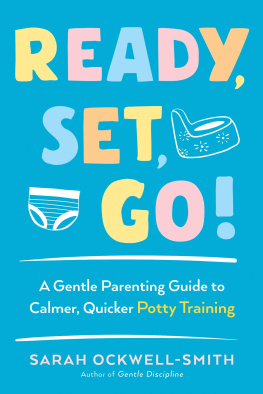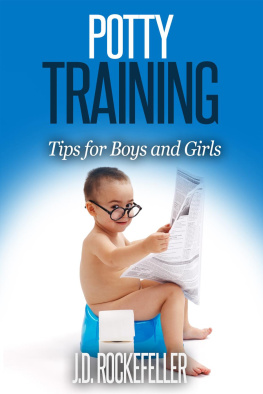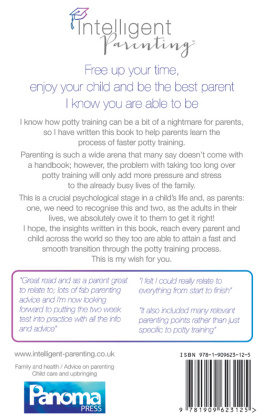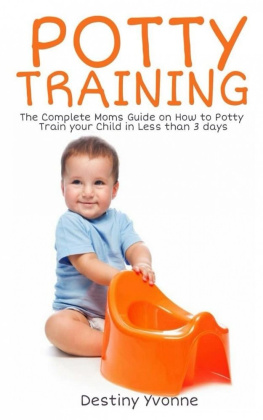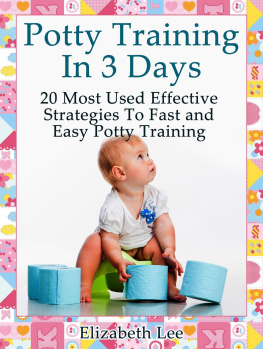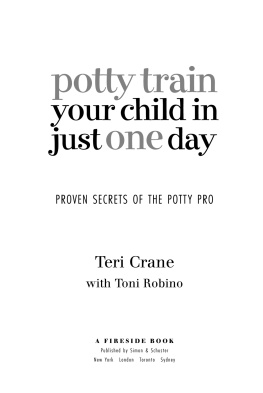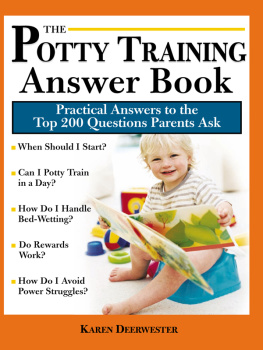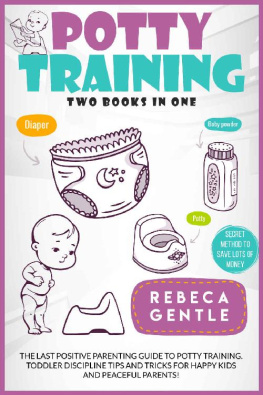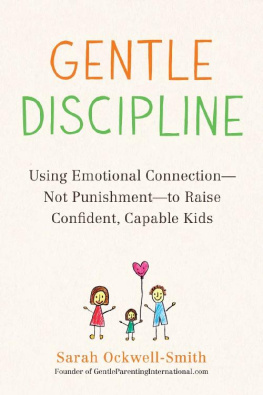Praise for Sarah Ockwell-Smith and Ready, Set, Go!
I love the way Sarah breaks the concept down into clear guidelineswithout being strident about one right way to be a parentand the way she addresses the challenge of shifting from mainstream parenting to more gentle ways. The world can be a harsh place; families dont have to be.
Lawrence J. Cohen, PhD, author of Playful Parenting
Provides a welcome antidote to the storm of advice that so often overwhelms new parents.
Dr. Laura Markham, author of Peaceful Parent, Happy Kids
With her trademark forthright approach, Sarah Ockwell-Smith offers advice and guidance for parenting children in a way that encourages and enables them to grow and learn.
Dr. Gill Rapley, author of Baby Led Weaning
Sarah Ockwell-Smith does a fantastic job of clarifying the research, pointing out the myths we have taken as fact, and the biological realities for our little ones.
Dr. Tracey Cassels, founder of EvolutionaryParenting.com
As always, Sarah has written a book that is easy to read and jam-packed with new ideas to help little ones.
Marneta Viegas, founder of RelaxKids.com
Beautifully written and explains the research exceptionally well. It has just the right touch of explanation, reassurance, and science to help mothers feel confident.
Diana West, international board certified lactation consultant, La Leche League leader, and author
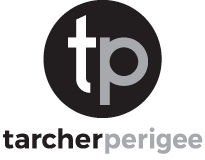
An imprint of Penguin Random House LLC
375 Hudson Street
New York, New York 10014
Copyright 2017 by Sarah Ockwell-Smith
Penguin supports copyright. Copyright fuels creativity, encourages diverse voices, promotes free speech, and creates a vibrant culture. Thank you for buying an authorized edition of this book and for complying with copyright laws by not reproducing, scanning, or distributing any part of it in any form without permission. You are supporting writers and allowing Penguin to continue to publish books for every reader.
Tarcher and Perigee are registered trademarks and the colophon is a trademark of Penguin Random House LLC.
LIBRARY OF CONGRESS CATALOGING-IN-PUBLICATION DATA
Names: Ockwell-Smith, Sarah, author.
Title: Ready, set, go! : a gentle parenting guide to calmer, quicker potty training / Sarah Ockwell-Smith.
Description: New York : Tarcher Perigee, [2017] |
Identifiers: LCCN 2018011129 (print) | LCCN 2018012002 (ebook) | ISBN 9781524705763 (e-book) | ISBN 9780143131908 (pbk.)
Subjects: LCSH: Toilet training.
Classification: LCC HQ770.5 (ebook) | LCC HQ770.5 .O35 2017 (print) | DDC 649/.62dc23
LC record available at https://lccn.loc.gov/2018011129
Version_1
Contents
Introduction
T here are a few milestone moments in the life of a young child that really pave the way for their future independence: sitting up, learning to crawl and walk, and eating solids are all huge achievements that signal your little one is growing up and taking charge of their own world. None of these, however, is as contentious or fraught with parental angst as when a child is learning to control their own bowel and bladder, otherwise known as potty training. No matter how you approach toileting in the first year or two of your childs lifebe it with disposable diapers, cloth diapers, or diaper-free methodsthere will come a time when they will transition to full control of their own toileting needs. And your role as a parent is to gently guide and lead the way, at a mindful pace, at the right time.
It sounds so simple when you think of it like that, doesnt it? But in reality, potty training is a confusing minefield spearheaded by big businesses that benefit from parental confusion and anxiety. The helpful information they share with parents is often full of mixed messages: to keep your child in diapers for as long as possible, with shapes and sizes to fit any age and need, versus, for example, the all-singing, all-dancing, light-up musical potty, designed to train them as soon as humanly possible. And noncommercial advice can be just as confusing. Should you praise, clap, and reward your child when they produce, or should you approach potty training as you would any other bodily function, without fanfare? Should your child be dry by the time they start nursery school? Or should you potty train your baby when they are only a few months old? And what about children who start school still wearing diapers?
In recent years, parents have been increasingly shamed over potty training. If children are still in diapers when they start school, their parents are labeled negligent and lazy. If they use a potty from birth, their parents are deemed weird and New Age. But the truth is that while the parents may act as navigators, it is the children themselves who are in the drivers seat. Your three-year-old isnt interested in whether his big brother was dry by his second birthday. Your daughter doesnt care that the children of your friends from baby group have all just potty trained. And your child definitely doesnt care that you are exhausted, busy, or about to start a new job when they are ready to potty train now.
Youre in this together.
Your role is to be informed, watchful, brave, and set to go when your child is readynot earlier, not later. Once youve gotten started, your role is to be consistent, no matter what. Throughout this book we will look not only at your childs thoughts and feelings and readiness but yours too, becauseas with most aspects of parentingyoure in this together, and your own emotions can have a dramatic impact on your child, positive or negative. Having worked with thousands of parents internationally in my capacity as a parenting coach, Ive come to see that the gentlest, easiest, and most effective potty training happens when you work with your child, as a team. And this book provides a straightforward, evidence-based look at the process: no confusion, no mixed messages, just clear explanations and steps that work.
Potty training or toilet training?
You may have noticed that I use the term potty training a lot. Indeed, I have used it in the subtitle of this book. This is not to imply, however, that you must train your child using a potty and not a toilet. Either is fine, as we will discuss in chapter 3, and my use of the word potty is based solely on the fact that it translates well around the world.
Potty training or potty learning?
I am known as a strong supporter of child-led parentingthat is, allowing your child to lead and following their cues as much as possible. My view is no different when it comes to potty training. But if I believe in being child-led, then why do I focus on the word training? People often ask me, If youre training them to do something, doesnt that imply you have all the control? The Cambridge English Dictionary defines the word training as the process of learning the skills you need to do a particular job or activity. Is it possible to be child-led and gentle, while helping children to learn the necessary skills for ditching diapers? Of course it is. Training doesnt have to mean an authoritarian approach. Sadly, I think it has become synonymous with the baby trainers who advocate prescriptive routines and harsh sleep interventions. However, I have trained my children to do many things while being totally empathic and compassionate to their needs. I have trained them to cross the road safely, to be careful when using sharp knives, and to stroke the cat gently rather than pull its tail. In my previous book

